The summer of 2024 was our busiest and most exciting by far. A lot of wonderful people joined the group; a few have already left and some are already thinking about coming back. Read on for a sneak peek at what we’ve been up to and the faces behind all the action.
New faces in materials innovation
Luokun Zhang, former group intern returned to the group, along with two new faces, Zehua Li and Junyi Chen to complete their practical post-graduate project in advanced functional materials. Always the patient and methodical experimenter, Luokun trialled quite a few project ideas in his first couple of weeks before finally settling on generation of composite materials. Along the way, we had to build our own microscope, for which Luokun designed 3D-printed a sample stage. We both learned a lot about optics, thanks to Abhishek Sharma and Ilya Starshynov who held our hand in the process. Zehua and Junyi both explored Schiff bases this summer, using them to assemble large molecules and new materials inside our prototype aerosol reactor.
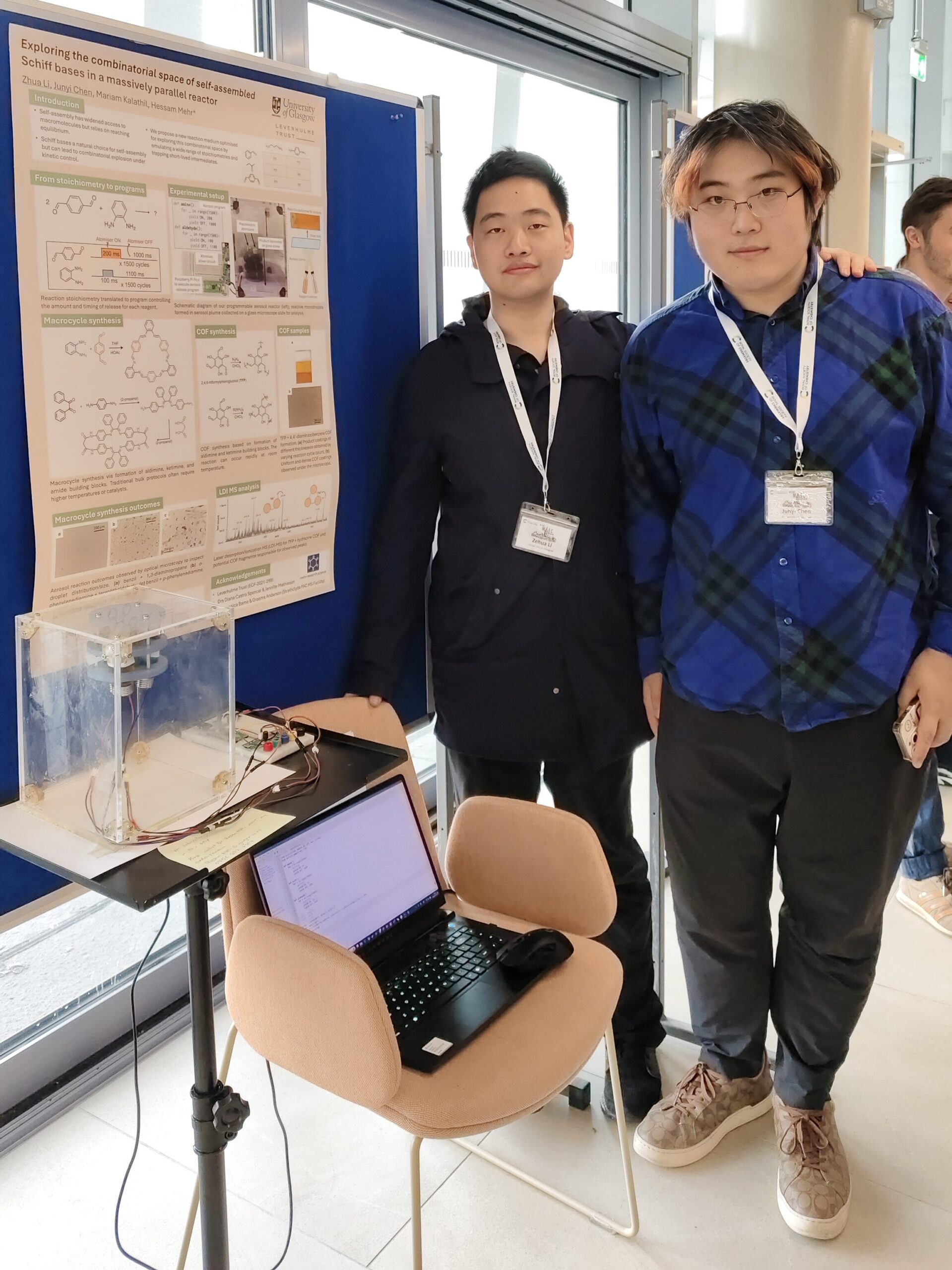
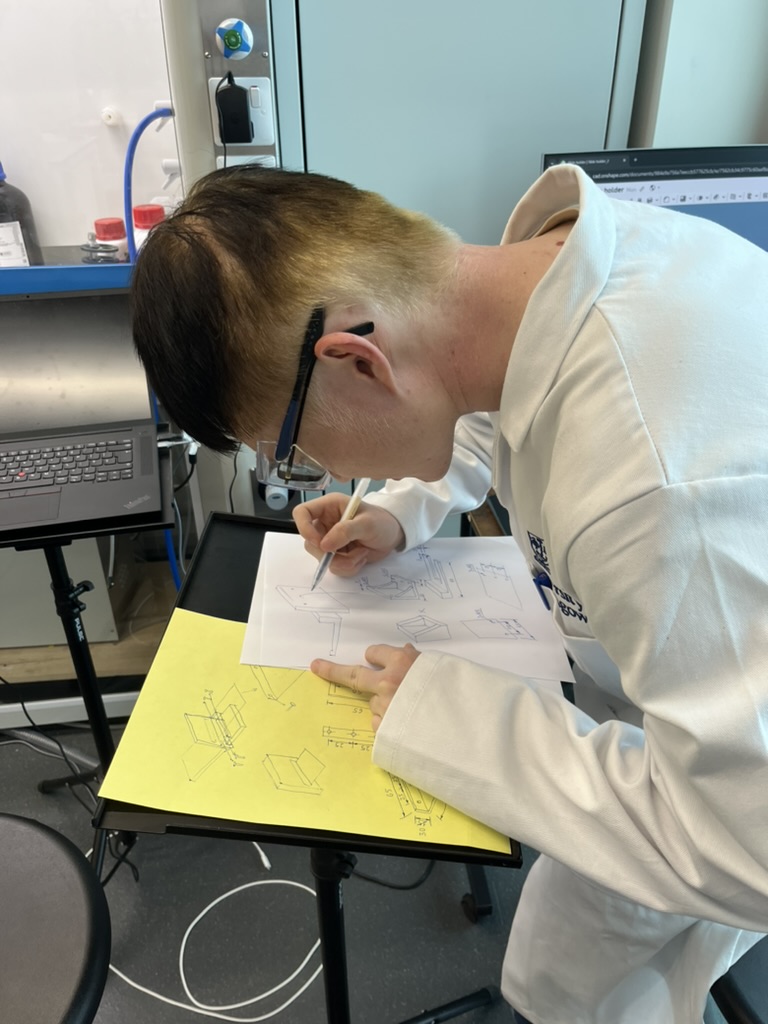
Antimicrobial resistance
For the first time, this year we hosted a Chemical Biology post-graduate student. Zixi Wu took a brave leap aboard an ambitious project where we looked into the feasibility of generating a diverse range potential new antimicrobials by exposing existing antibiotics to reactive conditions within our aerosol system. Zixi deserves extra kudos for keeping his cool on a project with many layers of unknowns. His early results pave the way for future students taking on this challenge.
From Georgia to Scotland
Mariam Kalathil visited us from warm Georgia, US as part of the Arcadia summer exchange programme. Despite never having taken courses in organic chemistry or electronics, she excelled in her project, building a one-of-a-kind experimental setup to answer a fundamental chemistry question. The goal of Mariam’s project was to find out whether the messiest chemical mixtures also produced the largest number of new chemical compounds.
Building in the workshop
Talented and extremely keen Nuffield placement student Saad Azad was busy building a motorised XY stage out of old CD/DVD drives! Saad had to pull these drives out of dead computers in electronics recycling, and control the motor moving the laser back and forth using an Arduino program. These types of stages are useful in microscopy, where they are used to scan different parts of a sample automatically.
Invisible hands
UpnaLab Phd student Josu Irisarri spent this summer in Glasgow looking at ways to control chemical droplets using sound. We tried too many mad experiments to list here but one nice Friday found a quick zap of sonic energy could extract little droplets off the surface of a petri dish of water, bringing us a step closer to the tantalising future of contact-free chemistry.
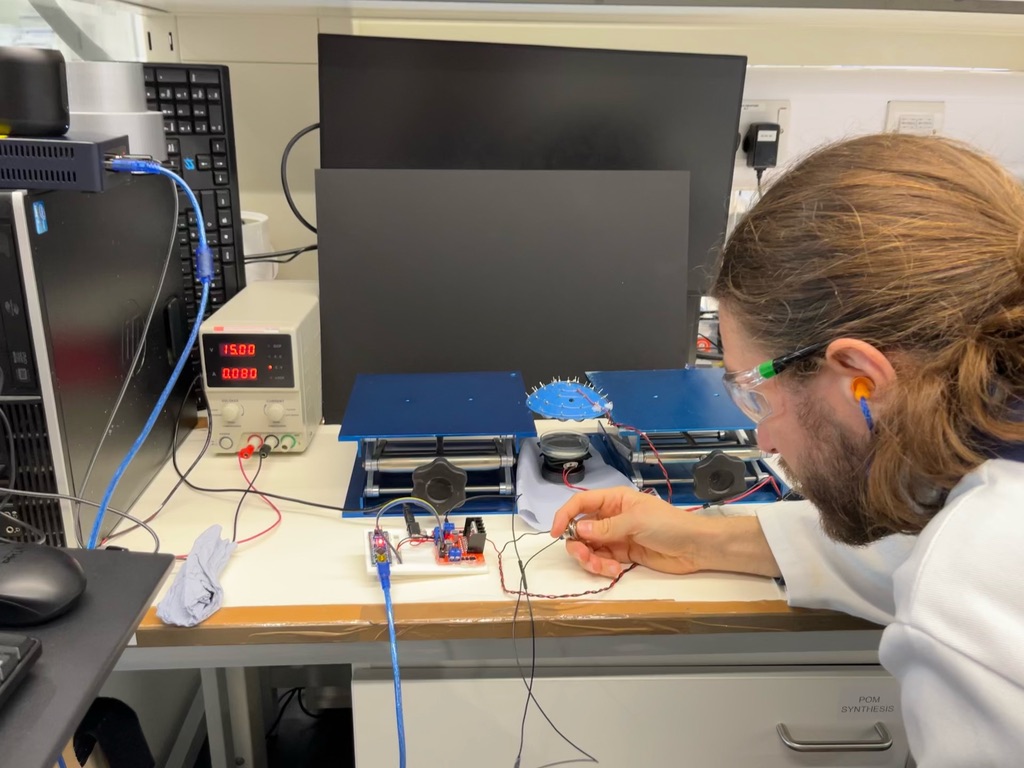
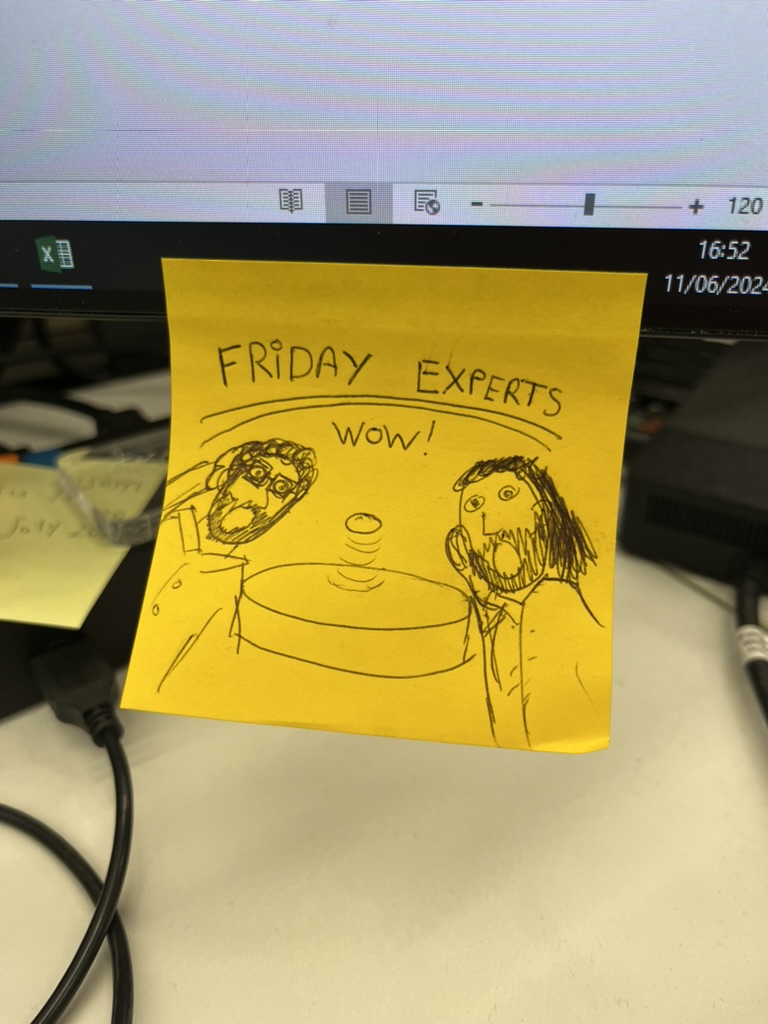
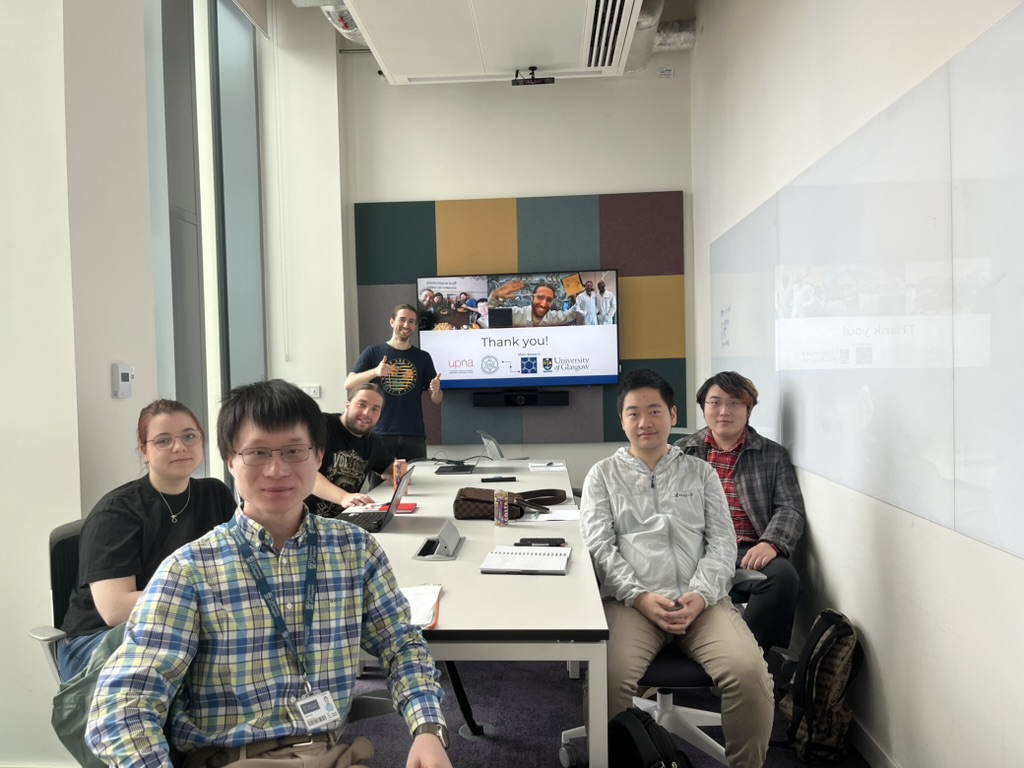
Prototypes galore
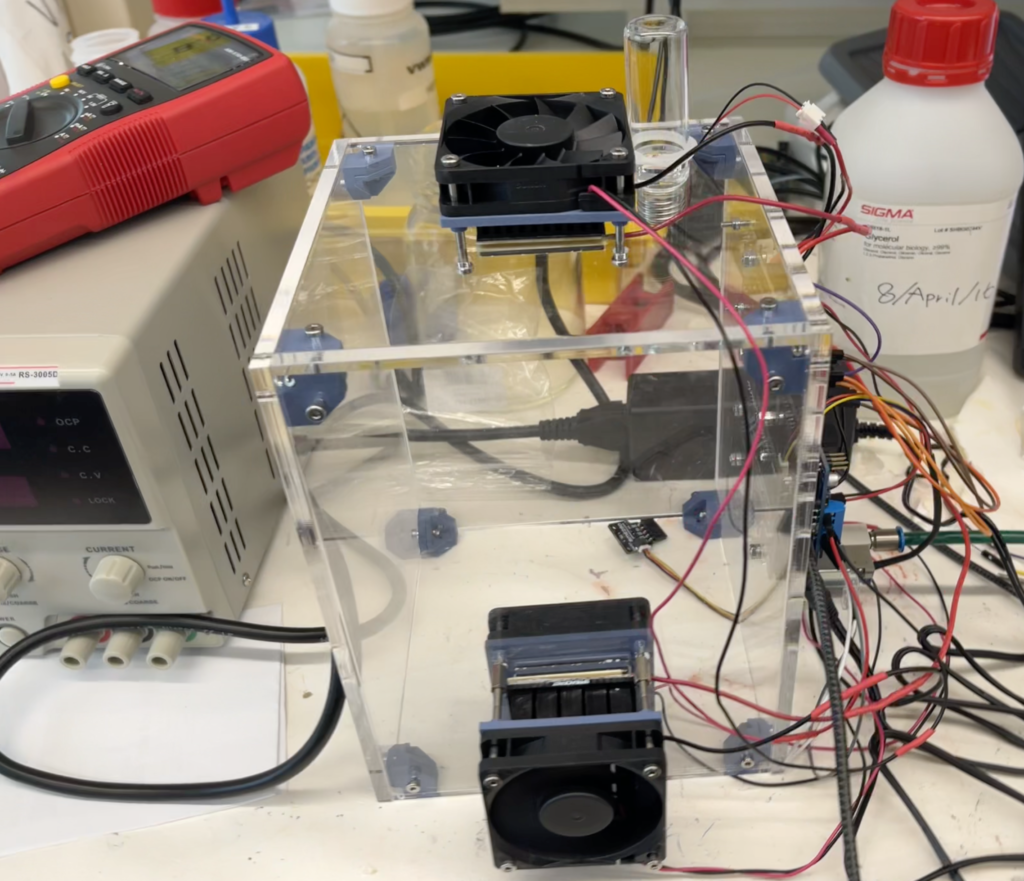
Our brilliant intern Basia Jarzabek had just finished the 3rd year of her undergraduate course in Chemistry but this summer her days were mostly spent 3D printing, laser cutting, soldering and programming. She went from never having touched CAD software to helping everyone with their parts. Aerosols particles are very sensitive to their environment, so Basia’s goal was to prototype a temperature- and humidity-controlled environment for them.
Learning from each other
Group meetings and lab time were great opportunities to learn from each other. A personal highlight was getting a fresh appreciation of how video rather than raw data can be the perfect medium for documenting experiments.
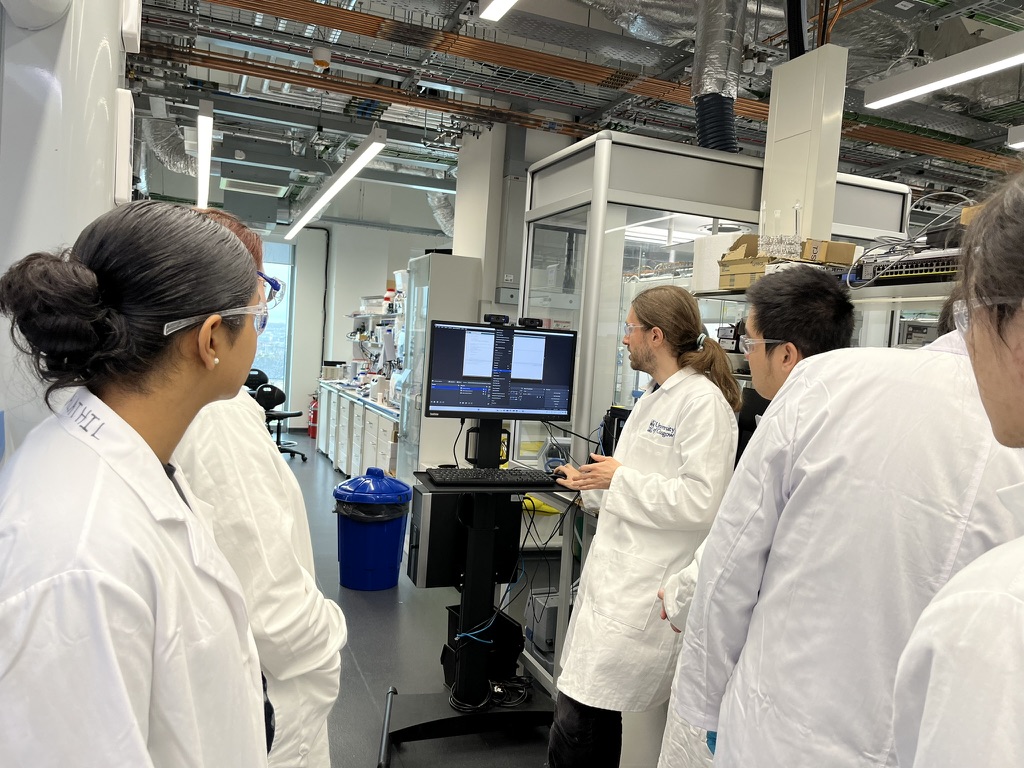
Thank you
A heartfelt thank you to every one of our brilliant students. Their curiosity, energy and positive vibes have fuelled me all summer and inspired many that they interacted with. A big thank you to everyone in the ARC who facilitated their project as well. I will miss some names, but these projects would not have been possible without the help of Maria Diana Castro Spencer, Jennifer Mathieson, Jim McIver, Mary Wong, Phil Kitson, and Lee Cronin.
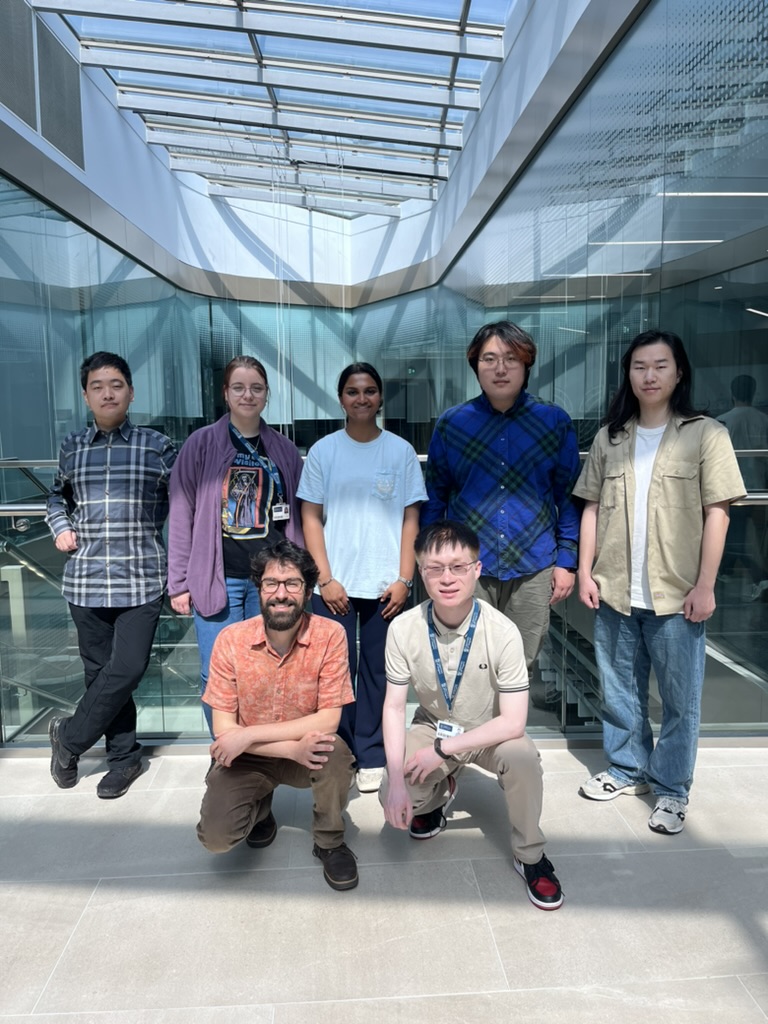
Leave a Reply
You must be logged in to post a comment.